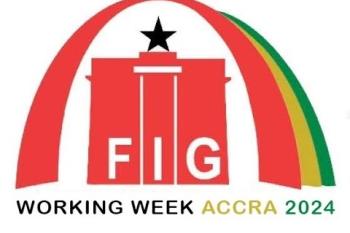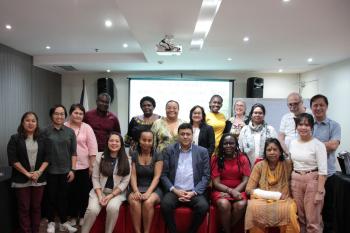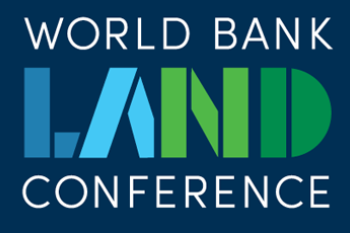
Urban Land Transformation in Africa along the urban and rural nexus: What policies and tools are needed?
Open Session
Urban Land Transformation in Africa along the urban and rural nexus: what policies and tools are needed? Date and Venue : Thursday, 22 of November 2018 - Tan Tan Room Time: 14:30 to 17:30
African countries are facing irreversible urbanization trends with significant impact on the way land is accessed, used and managed. While urban and rural land governance and management are key priorities across the globe, attention needs to be put on developing countries, especially along the increasingly unclear boundary between urban and rural land. The interface between urban, peri-urban and rural area has become extremely indented, both in terms of spatial forms and of its social and economic interconnections. The increased flow of knowledge, economic activities and information between urban and rural areas has blurred the lines of what is traditionally urban land and what is rural land. Strict land use distinctions and classifications are becoming more and more difficult and irrelevant, and this requires re-thinking and transformation in the way land is regulated, valued, transacted (land markets) and put to fruitful use. The weakness of both policy and planning systems related to land management and their tremendous transformation has particularly visible effects in peri-urban areas. Increasing land conflicts are evident at the intersection between rural and urban land with consequences both socially and economically due to a lack of security of tenure and integrated spatial planning mechanisms. Migration, increase food insecurity, obstacles to land acquisition for public infrastructure and development and the optimum use of public lands are some of the key challenges encountered. Unfortunately, this interdependency between rural and urban land has often been overlooked, and little knowledge and expertise has been produced to guide decision makers and local authorities responsible for land management. The large-scale urbanization and the implications of this type of development on rural areas call for renewed attention being given to the importance of land policy, tenure, use and planning in fostering linkages between the urban, peri-urban and rural contexts. Within an increasingly urbanizing africa, there is renewed interest in ensuring that complementary and mutually reinforcing development across rural, peri-urban and urban areas is an integral part of both the post-2015 development agenda and the New Urban Agenda. There is now opportunity to comprehensively deal with land governance and tenure security in the urban and rural continuum with the emerging global and regional framework (SDG’s, New Urban Agenda and the African Land Policy declaration); but the linkages between urban and rural land is weak in all those instruments. There is need to raise awareness and to develop comprehensive land policies and frameworks to deal with land along the urban-rural continuum, if the world does not want to witness the sprawl of unplanned, inefficient and unsustainable urban agglomerations that negatively affect rural development rather than catalysing and accelerating it. The main objective of the session is to review critical land governance and tenure security challenges arising in peri-urban areas during the transformation from rural to urban, to guide policy and land administration interventions. During the session, it is expected that key land actors, mayors and decision makers will:
- Share experiences and develop a common understanding of critical issues around land governance and tenure security along the urban-rural continuum.
- Explore opportunities for joint (social, economic, political) interventions to address some of the key aspects characterizing the urban-rural linkages (e.g. value chain and flow of good, migration, investment, infrastructure development, etc.)
- Identify critical entry points to guide programming for donors and decisions makers (mayor and central government).


